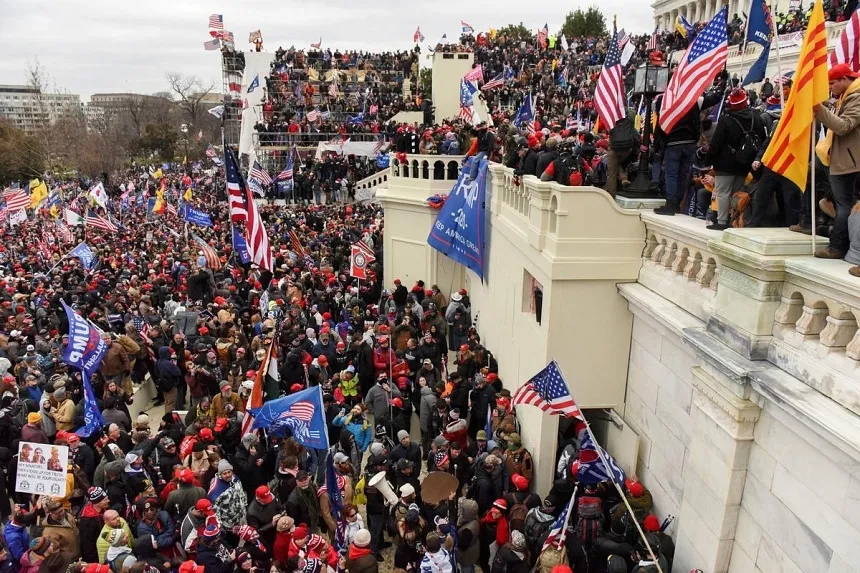WASHINGTON - President-elect Donald Trump said in an interview that aired on Dec 8 that he would act on his first day in office to pardon rioters involved in the Jan 6, 2021, Capitol attack, further building expectations for a broad granting of clemency.
"I'm going to be acting very quickly, first day," Trump said on NBC News' "Meet the Press with Kristen Welker" when asked when he planned to pardon his supporters who were charged in the attack aimed at overturning his 2020 election defeat.
Trump told Ms Welker that there could be "some exceptions" to his pardons if the individuals had acted "radical" or "crazy" during the assault, which left more than 140 police officers injured and led to several deaths.
But Trump described the prosecutions of his supporters as inherently corrupt and did not rule out pardoning the more than 900 defendants who had already pleaded guilty, including those accused of acting violently in the attack.
"I'm going to look at everything. We're going to look at individual cases," Trump said.
The comments - Trump's most detailed on the issue of pardons since he defeated Vice President Kamala Harris in the Nov 5 election - will likely add to already high expectations for broad action once Trump is sworn in to office on Jan 20.
"He continues to put out the public message closer and closer to what the J6 community is asking for, which is clemency for all of the January 6ers," Ms Suzzanne Monk, a longtime advocate for defendants charged in the riot, told Reuters.
Hopes among Jan 6 defendants and their supporters for broad-based clemency have been growing over the past week after President Joe Biden pardoned his son Hunter, marking a reversal from his pledge not to interfere with his son's criminal cases.
Mr Biden said Hunter deserved a pardon because he was the victim of political persecution, an argument Trump will likely use to justify mass pardons. Some Mr Biden critics said his decision would lessen the political cost for Trump.
Prof Kimberly Wehle, a professor at the University of Baltimore School of Law, said she was worried broad amnesty for Jan 6 defendants would serve to wrongly incentivize fomenting unrest or even violence on behalf of a president. "The idea that he's going to reward people for violating law on his behalf in connection with an attempt to overthrow legitimate election results... that's not precedented," said Prof Wehle.
In what has been billed as America's largest-ever criminal investigation, at least 1,572 defendants have been charged in the Jan 6 attack, with crimes ranging from unlawfully entering restricted grounds to seditious conspiracy and violent assault. Of that total, more than 1,251 have been convicted or pleaded guilty and 645 have been sentenced to prison, with punishments ranging from a few days to 22 years according to latest data from Justice Department.
Mr John Pierce, a lawyer who has represented dozens of Jan 6 defendants urged Trump issue blanket pardon all who were charged participating riot. "I just don't know how you do it otherwise," he said noting difficult parse conduct scores cases worked way through legal system merit pardon. "I think you would see lot unhappy people January community" if pardons granted case-by-case basis he said.
